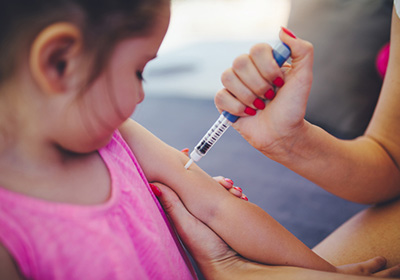
An experimental treatment can essentially reverse type 1 diabetes in certain types of laboratory mice. An injection of the therapeutic agent converts cells that normally control glucose production into ones that generate insulin.
What this implies for millions of people who have type 1 diabetes is that there is a chance that individuals could eventually regenerate their own insulin-producing capacity, restore their normal blood glucose balance, and hopefully help them make progress toward being free of the disease, the researchers say.
Glucagon and insulin are produced by groups of cells in the pancreas known as islets of Langerhans. These hormones work in tandem to keep blood glucose under control. However, Type 1 diabetes disrupts that process by triggering the body’s immune system to attack and destroys insulin-producing cells. As a result, most people with Type 1 diabetes rely on insulin injections or pumps to survive.
To determine if they could reverse this condtion, the scientists induced diabetes in mice. When these same mice were given a human monoclonal antibody that blocks glucagon binding in the liver, their blood glucose levels normalized and circulating blood levels of insulin were restored. Looking closer, they found that the glucagon producing cells had started making insulin instead.
The researchers are now beginning to investigate how glucagon cells convert into insulin-producing cells and avoid being damaged by the immune system to see if they can gain insights into new ways of helping people with diabetes.
